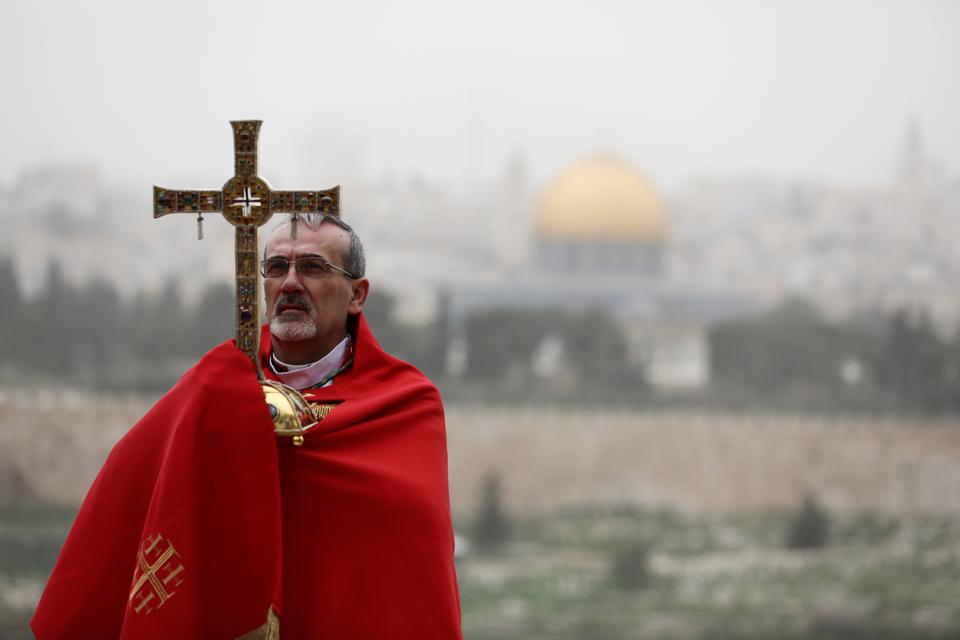While the church has a vast body of members, the pandemic is leaving one of the oldest religious institutions in financial limbo.
The Catholic Church has survived many things, including the Protestant Reformation of the 16th Century, capitalism and secularism.
As the world’s oldest religious institution, with nearly 1.3 billion followers, the Catholic Church is the largest continuously operating international organisation, and the faithful would also like it to survive this deadly pandemic.
But no one can deny that the Vatican’s finances are in disarray.
“We didn’t realise how much the Spirit would force us to look at who we are and how we do things,” said Margaret Matijasevic, executive director at National Conference for Catechetical Leadership, a leading group in Catholic religious education in the US, referring to the financial crisis the church faces.
“Now you’re in the crisis point where you’re losing your main business model, which is based on the parish business model – and the same thing is happening with many national organisations that have mimicked that model,” Matijasevic said.
Due to the pandemic, not only most public services, educational and private business activities, but also religious congregations have also stopped, decreasing much-needed incomes to the church from their parishioners.

Before the pandemic, Catholic churches across the US were able to collect more than $5 billion a year in donations from members through weekly gatherings, according to experts.
Donations disappear
Catholic churches are live streaming mass and other church services and also asking members to donate online, but the most recent data show that almost half of American congregations are receiving less than 10 percent of their annual donations online, leaving many parishes in financial limbo.
In New York and Los Angeles, home to the largest Catholic diocese in the US, the churches are reporting massive revenue loss, amounting to nearly half of their regular income.
The US is one of the biggest funding sources for the Vatican and similar losses have been reported in other countries such as Italy, where massive Catholic populations reside.
The US and Italy are the two worst-affected countries by Covid-19, accounting for nearly one-third of the world’s total deaths and confirmed cases as both countries have aggressively practised lockdown measures across many parts of the countries.

“We are in uncharted waters, financially,” said John Quaglione, a spokesman for the Roman Catholic Diocese of Brooklyn in New York City.
“There will be some serious conversations and some strong conversations with the parishes and the economic folks to help get us through this,” Quaglione added.
The financial losses are not only related to donations either.
With public closures since early March, the Vatican has also lost revenues generated from its popular museums, which are its biggest source of income, earning around $43 million per year.
Changing attitudes
While many devout Catholics believe the current disruption in religious services and church revenues represent a temporary trend, some don’t discard the possibility that people might lose their dedication to religious services after the pandemic.

“We had no concept that Covid-19 would be coming down the pike and force us to refocus who we really are,” Matijasevic reflected.
Other experts also see that some problems could persist even after the pandemic.
“Global crises of the kind we are currently facing can lead to seismic changes, but often as not, they simply clarify current challenges and possibilities,” said Richard Gaillardetz, the Joseph professor of Catholic systematic theology at Boston College and a former president of the Catholic Theological Society of America.
“Certainly, the widespread cancellation of public religious activities has had a palpable impact on church life. When the pandemic has passed, perhaps many Catholics will simply not return, but I have my doubts,” Gaillardetz observed.
Sex scandals
Before the pandemic, the Roman Catholic Church was already dealing with a number of problems.
Among others, sex scandals have profoundly diminished the church’s image across the world as many top church officials and priests have been accused and convicted of sexual abuse.
The high-profile trials have not only inflicted irreparable damage to the church’s divine authority and prestige but also depleted the Vatican’s financial sources as legal costs related to defending the clergy continue to pile up.
Source: TRT World
